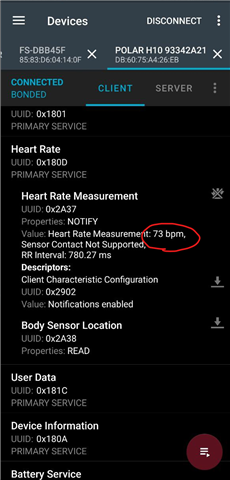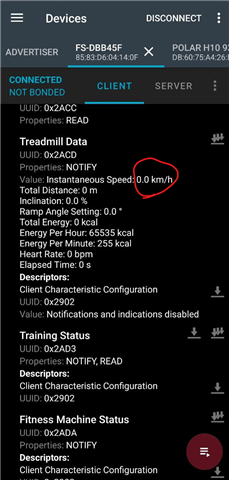Hi,
I'm new to all this, I'm using the nRF Connect app and it's amazing!
I'd like to know if there's a way to:
1. create a global macro controlling multiple devices?
2. store values through macros, with a public scope that can be accessed from the other device's macro?
3. run multiple macros at the same time?
My goal is to read the HR from a Polar H10 and control the speed of my FTMS treadmill based on that.


Any tips, leading to guides or other apps even would be much appreaciated!
Thanks!


